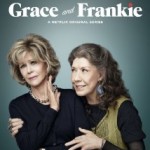I’ll admit feeling a little protective when I heard about a remake of The Women, the 1939 classic which is still one of my favorite movies. It was released the same year as The Wizard of Oz and Gone with the Wind, but Dorothy and Scarlett O’Hara had nothing on these ladies. Featuring the likes of Norma Shearer, Joan Crawford and Rosalind Russell, they’re a quick, catty and conniving bunch of man-grabbing, back-stabbing-with-a-smile friends who display everything great and monstrous about female bonding. Despite the title, it’s largely a movie about men (without a man in it!) and the horror of betrayal, both by your man AND your best friend. Yet it’s peppered with wickedly funny one-liners and some of the best cat fights ever filmed, so what’s not to love?
Certain I’d be disappointed with the remake, I bought a ticket anyway and found myself having mixed feelings about the facelift my girls got. There’s plenty of needlessly suggestive and outright vulgar material in this film, making it completely inappropriate for children, teens, or anyone who’s easily stumbled or offended. That said, there are parts of it that work, and it’s those parts I want to focus on.
The updated version retains much of what worked in the original, while omitting outdated cultural norms of the 30’s. Women no longer have to travel to Nevada, for example, to get a divorce, nor do they have to rely solely on their men for income and social status, both of which were realities largely directing the action in the original film. But there are things about human nature that never change—seduction of married men, gossip for entertainment with a destructive undercurrent, and the fear for one’s position that can lead to betrayal. This is pointedly embodied in Mary, the key figure, who discovers her husband’s adultery and plunges into the hard questions every wronged woman has to tackle: Where do I go from here, How could he do it, Am I at fault, and, above all, Is there a future?
Fortunately, that’s not the end of the story. The women have an imperfect but loyal support system holding them together. Mary is confronted by her mother’s distaste for her friends, and her old fashioned don’t ask (your husband about the affair), don’t tell (anyone including your friends) policy. Yet she opts to both ask and tell, wondering if it’s safe to let her friends in on her husband’s infidelity. Initially it’s not, especially after her best friend betrays her to the tabloids! But after a while each friend’s admission of her own imperfections and struggles gives Mary the strength to finally say she’s willing to look at her part in what caused the marriage to fall apart.
In the midst of all her confusion, she goes to a divorce recovery retreat center and encounters The Countess, a cynic of questionable character who nonetheless challenges Mary to quit obsessing over her husband’s sin and find out, instead, what she really wants. Once embarked on a quest of honest self reflection, she admits, “I guess I only stood in the way of myself. How could I share myself since I didn’t know who I was?”
So what’s all this got to do with us? Plenty, so here’s what I take away from The Women:
Adultery is about Him, not Her. Mary feels she can’t compete with the “other woman’s” beauty, then comes to realize her husband’s behavior has more to do with his weakness than any shortcomings on Mary’s part. Women I’ve worked with often compare themselves to the pornographic images their husband’s been ogling, or to the third party he dallied with, and wrongly assume that if they were only more like this or less like that, then he wouldn’t have strayed. Wrong! Lust isn’t a simple choice of one woman over another. It’s a childish restlessness looking for ego stroking and distraction, not just beauty, and Mary comes to realize that if her husband was stupid enough to choose a cheap thrill over a committed partner, that was more his loss than hers.
Love is boundless, but not boundary-less. Some of The Women forgive (good!) without setting boundaries (bad) and without clarifying what the consequences will be if the boundaries are ignored. (Naïve) We sometimes reflexively “shrink to fit” the men in our lives, mistakenly thinking that the Biblical concept of submission means we are second class. So it’s no surprise that many women wake up one day and wonder who they are. In fact, in Genesis 3 God tells Eve as much as He explains the consequences of her sin: “Your desire will be for your husband, and he will rule over you”. (Gen 3:16). Mary is, to her credit, a forgiving woman, but as she deals with her husband’s sin and her one pain, she becomes a stronger woman as well. And does anything in Scripture tell us we’re to be anything less than Godly, gracious AND strong? We’re told that in Christ, although there are assigned gender roles, there is no preferred gender in God’s sight. (Gal 3:28). And each person is admonished to take responsibility to examine their own lives and choices, and make the most of what they have been given. (II Tim. 1:6-7; Matt. 25:14-28)
He’s not the only sinner in the family. Mary admitted she wasn’t able to share herself, because she never taken the time to know who she was. It was only when she became open to looking at her own “stuff” (translate “her own sin”) that she realized she had been standing in her own way. The infidelity of her husband and the support of her friends provided the vehicle to that realization, and a stronger, more peaceful woman emerged. Many women shortchange themselves and their marriages at this point. Enraged at their husband’s wrongdoing, they absolve themselves of any sin of their own, insisting his huge transgression negates any wrong they’ve done before or after their husband’s sin was found out. Big mistake! First, it’s un-Biblical, since our call to righteousness doesn’t have an escape clause in it that says, “Be ye holy, as I am holy, unless, of course, you’re husband’s a jerk.” Nope, we’ve got our own imperfections to deal with. So while it’s a wise woman who won’t blame herself for her husband’s sin, it’s an even smarter one who’ll take time to look to herself, work on herself, and trust God with the results.
That’s what The Women has to say to women. The best version, I gotta say, is still the original, which I recommend without reservation. (Click here to order it) Watch it with some friends, discuss how the characters lean on each other for support and wisdom (and yes, at times, for folly) and take away some lessons to apply to your own marriage. After all, there’s nothing like a good story to make us laugh at ourselves and learn from each other.











Priscilla,
Good to hear from you. It’s great to hear from a find like-minded fan of old movies. There are some great stories out there, which I think have good insights into the things we go through. And it sounds like you’re working through forgiveness and recovery with the Lord’s help. Praise God for that.
I hope you’ll stay in touch and add to the comments here with the things that God has taught you in your proces. I’m sure many of the women will appreciate your insights. Take good care. -R
RENEE!!
I agree…Old movies are the best. you are right..I always wondered if there would be a remake of this fabulous movie…i never thought it would happen…due to egos. However, I did buy the ticket and saw it….my feelings are the same as yours. The original is better….no need for all the unnecessary stuff.
Just want to say thank you for all the points in this articles. I wish I found you during my trials. I Praise God that He was at the throne and I was at His feet. 1.5 years in recovery with his infidelity.
Donna, I found “Choosing Forgiveness” by nancy Lehigh (i think) helped. I too get stuck with memorie and moments….thank you Renee.
Donna, I like your sense of humor about the lobotomy! Seriously though, riding out several small crisises can wear you down. You mentioned having a hard time forgiving and the fact that you have a hard time setting boundaries. (I usually can set them, I don’t always enforce them). But it seems to me that forgiveness can come easier if you feel you have more control. I would recommend the book “Boundaries” by Townsend and Cloud (see WifeBoat Store) if you don’t already have it. Then, I would suggest a good support system to help you with making and keeping boundaries! That’s what I needed, and what helped me. I hope to add a posting on support systems with more ideas soon. Hang in there, girl! -R
Seriously though, riding out several small crisises can wear you down. You mentioned having a hard time forgiving and the fact that you have a hard time setting boundaries. (I usually can set them, I don’t always enforce them). But it seems to me that forgiveness can come easier if you feel you have more control. I would recommend the book “Boundaries” by Townsend and Cloud (see WifeBoat Store) if you don’t already have it. Then, I would suggest a good support system to help you with making and keeping boundaries! That’s what I needed, and what helped me. I hope to add a posting on support systems with more ideas soon. Hang in there, girl! -R
Feel so relieved to have found your blog/website and the picture isbeautiful and the title clever. Your analogy is good, but as I am in another small crisis with the husband, it is hard to put my heart around continually being forgiving. But the truth is I do not know how to set boundaries. How do you tell someone you need to get a lobotomy!!!!! thank you so much renee for being there. hope to see more entries soon.
One thing’s for sure, Carrie – we can trust God to complete His work in us, through us, and for us. He is credible and faithful! Sometimes more faith is required than others, but He rewards those who dilligently seek Him. Thanks for your comments. I hope to post again in a day or so. -R
You betcha! Your points are spot on. Still married after 28 yrs., several infidelities on his part, almost divorced, and God is on the throne. Lots of hard work, mine and his, and leaving the trust issue (for me) up to God. Not naively, but not obsessing about everything. I guess I’ve gone to yellow alert from red. Improving, lots to be thankful for . .. the foremost of which is God’s faithfulness. Not mine, not his. God’s. And no, I’m not perfect, but I’m not a victim any longer either!
I am not married or a woman but I still enjoyed your review/observations. Very good post.